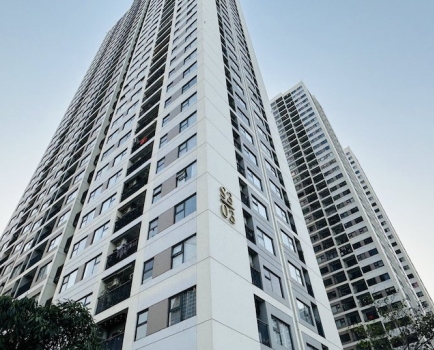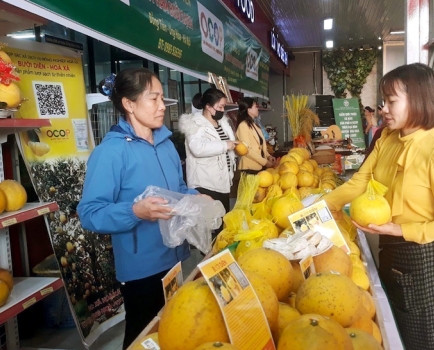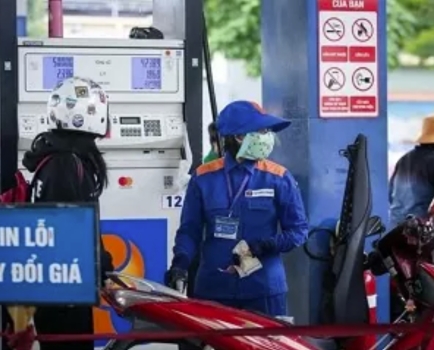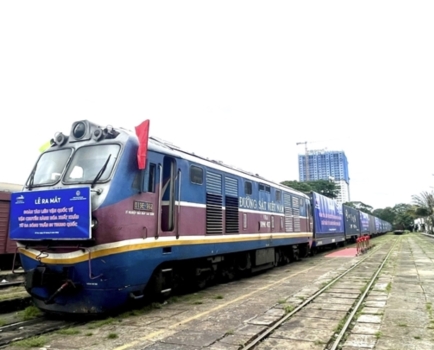Inflection point reached, definition of ‘public’ land imperative
Tue, 25 Jun 2019 16:38:00 | Print | Email Share:
Huge losses often mark the sale of public land in Vietnam to private buyers, a major shortcoming in land administration.

Dang Hung Vo
Many corruption scandals have erupted around such transfers.
Similar huge losses and squander also mark the transfer of land from private hands to the state by eminent domain, the legal provision that gives a government the right to expropriate private property for public use. Many land owners have felt deprived, and this has resulted in the fact land issues account for 70 per cent of all complaints and denunciations by the public.
In countries with recognized private land ownership, there is a clear demarcation between public and private lands. Here, the transfer between public and private owners is quite simple and only requires a just determination of the market value and a reasonable benefit-sharing mechanism.
Thus, there is less risk of corruption when public lands are sold to private buyers and fewer complaints when the government acquires lands. These countries adhere to the principle of pricing public lands properly when selling them, and taxing private land considerably.
However, the story becomes complex in countries with public land ownership, which number around 10, mainly in Asia and Africa, including Vietnam.
For its WTO entry, Vietnam had to go through tough multilateral and bilateral negotiations with existing members. Many countries demanded explanations about Vietnam’s land market. This task was later assigned to the Ministry of Natural Resources and Environment, and I was the one in charge of providing the explanations for this at the ministry.
I explained that: "Countries around the world, without any exception, must acknowledge that land ownership is a special kind of ownership because land is part of the common Earth, but it has specific owners. In a market-based mechanism, it is impossible to establish absolute state ownership of land, and as such, it is necessary to extend some rights to land users.
"At the same time it is unfeasible to impose absolute private ownership of land, and so this private ownership has to be restricted by giving back some rights to the state."
Let’s assume "A" is a justifiable point for land ownership, many countries have opted for reaching A from the left side through restricted private ownership while Vietnam has reached "A" from the right side through the fact that land belongs to the entire people with the state acting as the owner’s representative, or so-called extended state ownership. Vietnam’s Land Law stipulates a specific chapter on the land use rights market. The way I approached and explained the matter was accepted by our negotiating partners.
Later many experts from Europe and the U.S. expressed their opinions on land ownership to me at workshops and seminars. While not commenting about Vietnam’s choice of vesting land ownership in all its people, they asked me: "While a majority of countries have chosen to reach point ‘A’ from the left side, why has Vietnam, along with a minority, opt for the right side alternative?"
I offered to use mathematics models to prove that public land ownership can be applied to market conditions. They all laughed, got my point and no more inquiries followed.
This story reminds me of an incident when I was a graduate student in Poland. When my graduate thesis was completed, my instructor complimented me, saying: "You have managed to find your way straight to scientific truths unlike many scientists who complicate their own paths and take winding roads so that they can proclaim their self-acclaimed excellence once they make it." My reply to my instructor was in the form of two lines from the Tale of Kieu by our great poet Nguyen Du: "Goaded by demons and guided by phantoms, She always took the path of dire miseries." My instructor mused on my reply.
The Vietnamese legislature has not spelled out a transparent definition for public lands, yet the term "public land" is widely referred to at conferences and other public forums and well understood by the public. But when it comes to official documentation, many are afraid of the implications of this term. Everyone understands that public land refers to one whose land use rights have not been given to private hands.

A farmer harvests rice in a paddy field outside Hanoi, Vietnam, June 10, 2019.
Photo by Reuters/Kham.
In 2005, when the Ministry of Natural Resources and Environment appraised the enforcement of the Land Law around the country, many people in southern provinces complained that their land which was given to cooperatives after 1975 had been later handed over to other users.
I saw many asking bitterly why land cultivated by their families for generations had been handed over to others for use by authorities. The inspection teams patiently explained to them that the state acts as the land owners’ representative.
But, as an eyewitness to all this, I thought the debate would go on without end since each side was viewing the problem through its own and differing perspectives. I found explaining the issue very challenging, and so instructed the inspection team to just accept the complaints and forward them to relevant authorities for handling.
When all types of lands are deemed "public", the boundary between public and private lands gets blurred. Vietnamese refer to this situation as "semi-darkness" while Westerners call it "twilight" - and in such a situation, anything is possible. Encroachment on public land is possible if ward or commune authorities turn a blind eye to it. Acquiring "golden" lands is feasible if there is "support" from the provincial or municipal authorities. This accounts for the fact that the public often say most rich people in Vietnam make their fortunes from public lands.
It is now essential for lawmakers to establish a coherent difference between public and private lands to transparently determine the value during the land use transfer process. From the perspective of land use, private land needs to be legally defined as "land used for private purposes" while public land is one "used for public purposes, and one which has not been put into use."
I hope that during this Land Law amendment cycle the law can provide clear basic definitions of the public and private land to increase land revenues and reduce corruption and complaints. No matter how challenging and sensitive it may seem, it is high time this is properly addressed.
*Dang Hung Vo is a land management researcher and former Deputy Minister of Natural Resources and Environment. He helped set the foundation for the establishment of the 2003 Land Law, with many reforms in land management.
By: Dang Hung Vo/Vnexpress
---------------------------------------------
Same category News :













